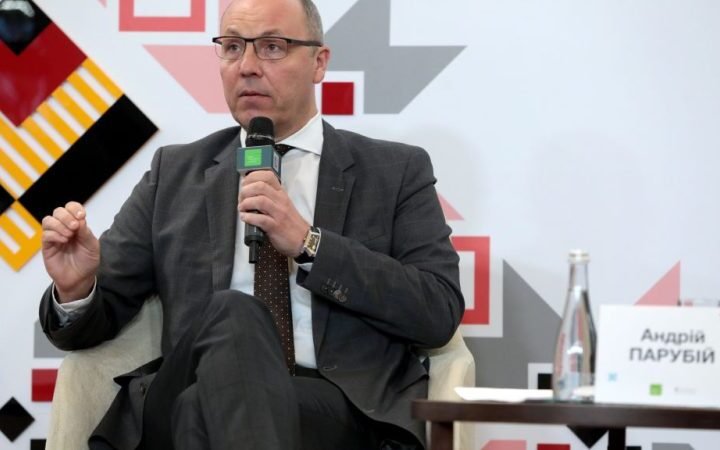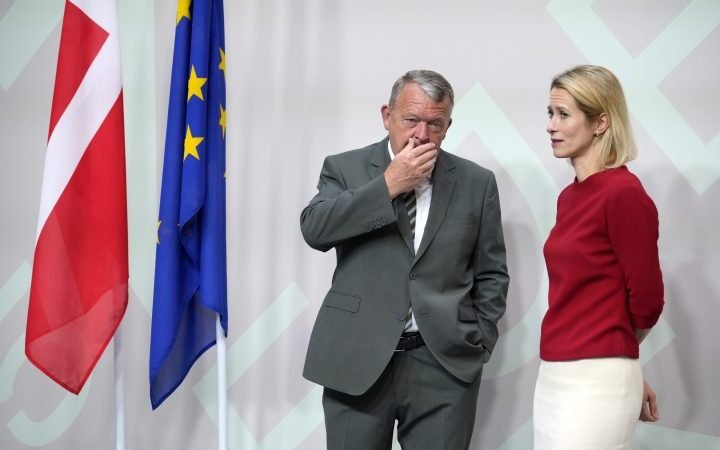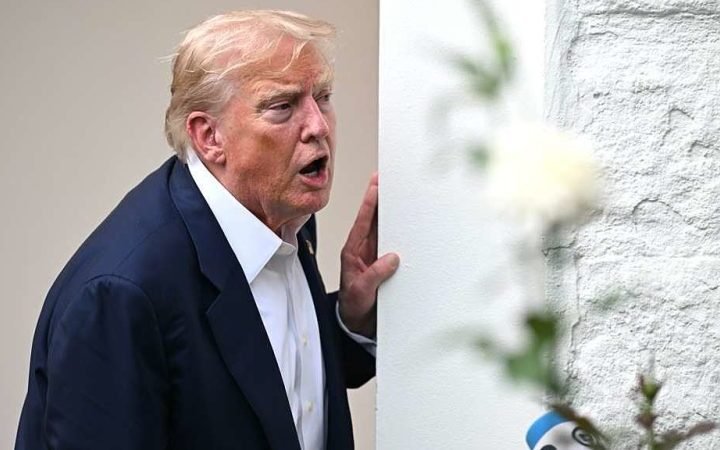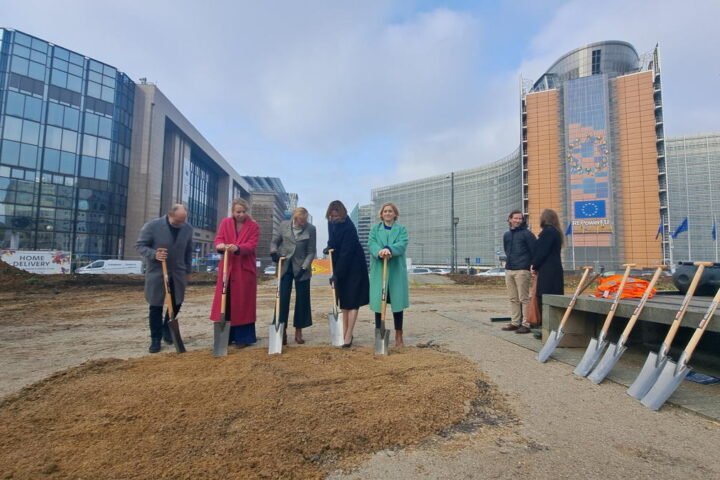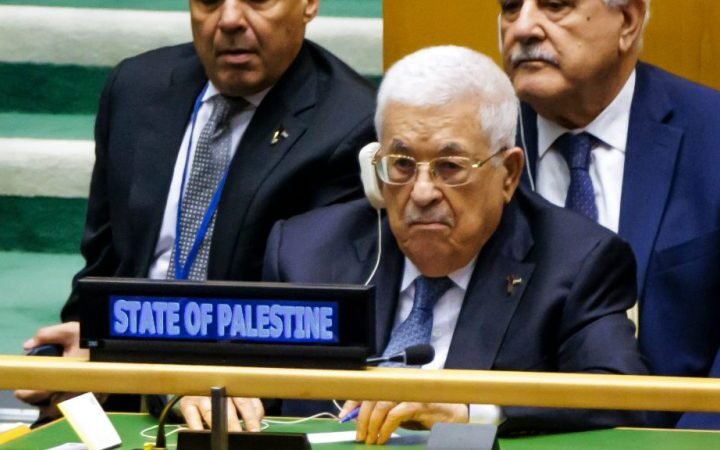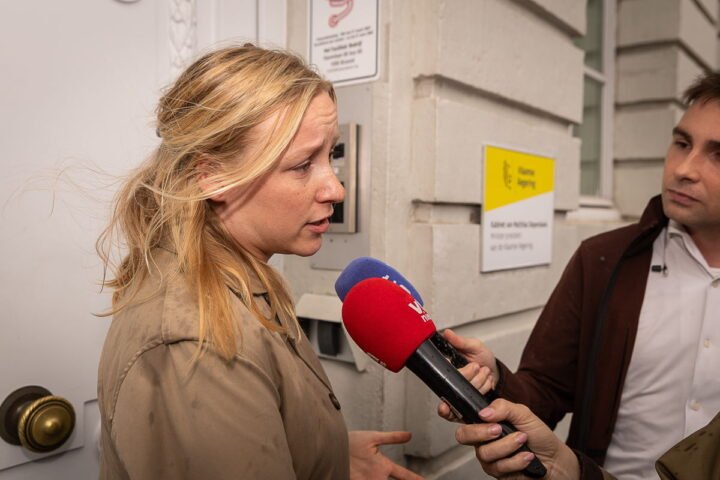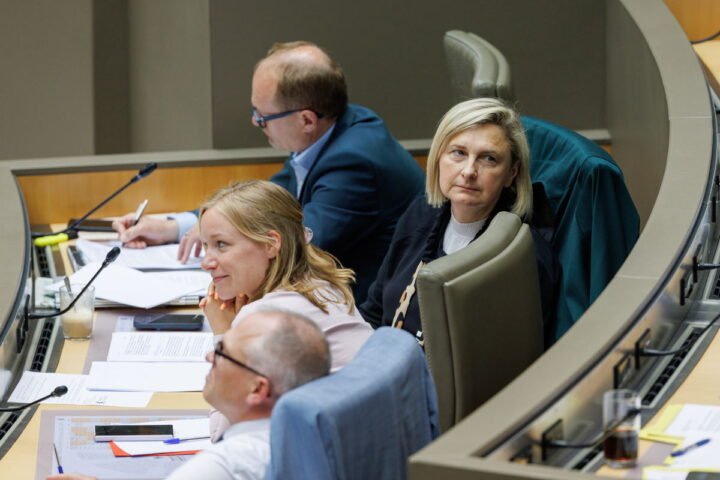Copenhagen, DENMARK – Russia’s latest missile barrage in Kyiv damaged the EU mission’s building and the British Council. The attack sets the stage for this week’s meeting of EU foreign ministers in the Danish capital, where they’re expected to weigh new measures against Moscow, reports 24brussels.
The internal document reveals potential options for a more stringent sanctions package, including possible secondary measures aimed at crippling Russia’s war efforts.
Key elements of the forthcoming 19th sanctions package, which Brussels plans to unveil mid-September, will focus on further targeting Russia’s so-called “shadow fleet” of oil tankers that are vital to its crude exports, alongside tighter restrictions on the importation of Russian goods.
EU officials are also increasingly contemplating actions against entities based in China and India, driven by mounting pressure from Washington.
Previous EU sanctions packages already included restrictions on an Indian oil refinery and two Chinese banks, with ministers now discussing a significant expansion of that list, marking a notable shift for a bloc that has traditionally been cautious about extraterritorial measures.
As of late July, the EU had sanctioned 535 individual oil tankers, according to the Kyiv School of Economics.
Ministers are expected to deliberate whether the bloc “should increasingly adopt targeted sanctions against enablers in the shadow fleet ‘eco-system,’ including operators, traders, refineries, ports, entities managing shadow fleet vessels, and private operators of international flag registries,” the paper states.
India, courted as a key trade partner amid its tariff disputes with the US, has come under scrutiny for capitalizing on discounted Russian crude, with its refineries accused of converting Russian oil into diesel and gasoline for the global market, effectively supporting Moscow’s military operations.
Several EU member states, such as Denmark, are advocating for discussions to extend beyond current measures, suggesting the activation of the EU’s anti-circumvention tool.
This instrument, adopted in 2023 but never utilized, would permit Brussels to block exports of sensitive goods to third countries suspected of aiding Moscow in evading sanctions.
Its activation could lead to secondary sanctions on companies in third countries, a strategy the EU has been hesitant to pursue.
Raising the stakes for Putin
Despite the bloc’s sanctions packages, they have yet to persuade the Kremlin to reconsider its actions. EU officials acknowledge they are approaching the limits of measures that solely impact Moscow.
With US-led peace negotiations stalled due to Russia’s disengagement, some EU members are contemplating linking advancements in talks directly to tougher sanctions in order to exert additional pressure on Putin.
A central question raised by the Danish EU presidency for the upcoming discussions is whether to incorporate conditionality into the next sanctions package. While many diplomats consider this unlikely, advocates argue it could keep the sanctions momentum going.
Moving on frozen assets
Alongside sanctions, the complex issue of frozen Russian assets remains contentious.
The EU has making strides toward utilizing profits from frozen Russian central bank assets to support Ukraine’s reconstruction, yet outright asset seizure is divisive.
The European Commission is preparing various options for confiscation and plans to soon present them to member states, according to informed sources.
Thursday’s missile strike on Kyiv has reignited calls for more assertive measures, with some EU diplomats suggesting it could influence this week’s discussions.
Commission President Ursula von der Leyen proposed a renewed initiative to seize approximately €300 billion in frozen Russian central bank assets, mainly held in Belgium’s Euroclear clearinghouse.
France, Germany, and Belgium express concerns that seizure could erode confidence in the euro as a reserve currency.
Subsequent Belgian governments have shown significant reluctance regarding the notion of seizure, fearing extended legal battles if challenged by Russia.
Euroclear itself, while neutral in the decision-making process, has also expressed caution, emphasizing the necessity of safeguarding stability in international financial markets and reinforcing legal principles that underpin global economies, including sovereign immunity and ownership rights.
David O’Sullivan, Europe’s sanctions czar, has urged member states to more effectively utilize existing measures, stressing that enforcement is as critical as the establishment of new regulations, according to diplomats.

